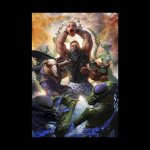jaF0
Watcher
- Joined
- Dec 31, 2009
- Posts
- 38,351
I did a thing once. Guy goes into a strip club. I made it a point that it was a dark place like most are and the bright stage lights, costumes and his drinking made it hard to see faces clearly. On stage, she was focused on the money/tips and sort of zoned out as to who was offering it explaning that it was part of how she coped with it all. They go into a special back room that some clubs reportedly have and engage in some stuff, still not really aware of who was who, even at close contact quarters. It wasn't until after they were actively engaged that she recognized a mark on her brother's neck.but I find I can still enjoy it if the author makes at least a modest attempt to explain why family member A and family member B get together beyond,
